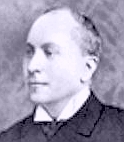Remained for five or six weeks in hospital and then went to the country; after this resumed work but had to knock off from a seizure of scarlet fever.
Following this, gastric symptoms again began; was treated at home, but unsuccessfully, and was obliged to seek admission to University College Hospital. This was two years ago. Here she remained for seven weeks and then was transferred to a Convalescent Home at East-bourne, where she remained on milk diet for a month. Again she resumed work, but was obliged to give up and go into a Home at St. Leonards, and from this again to the University College Hospital, and after a three weeks’ stay in hospital again returned to work in the country until the November previous to my seeing her. Then, for the third time, received admission into the University College Hospital, and remained under treatment till she again went as an in-patient of the Hospital at Eastbourne (Princess Alice’s) for ten weeks. Then again came to town where she has been getting worse and worse for the last month.
Symptoms. Great pain after eating, from the pit of the stomach through to the back, with violent retching; submammary stitch, worse when she retches. Had haematemesis within the last seven weeks. The pain in the pit of the chest goes on constantly; had to put on mustard leaves to assuage it last night.
Monthly periods irregular, four months since the last.
Comes over faint with a taste of blood in mouth when attempting to eat, has headache across the eyes with a hammering in the head going from the forehead to the occiput and coming on irregularly.
Actaea. Rac. O A, prescribed. A week after reports that she has been throwing up everything. Dose repeated.
June 23, 1898. Much improved the last few weeks; only is much constipated; food keeps down much better.
Ferrum phos. 3 x. 3 ij., two grains thrice daily.
July 7. Is much better, can eat meat now which she had not been able to do since seventeen years of age, has been having nose- bleed for two or three days. monthly periods still irregular and is constipated. Spiraea Ulmar. O A.
July 27. Keeping down food well, but has occasional nose-bleed and also pain in stomach. Ferrum phos. I X., one grain in single dose.
September 15. Gets sick if attempts work, and bowels are still confined. Up to this time general improvement had gone on, but it is evident it was not complete; the long continued delicacy had told its tale and had sadly enfeebled the digestive organs.
It was at this juncture, I gave her a unit dose of Ornithogal. Umbel., and shortly afterwards she went into service and has since got on perfectly well.
It may be well to interpose some remarks upon this very interesting plant.
ORNITHOGALUM UMBELLATUM.
“The Ornith. Umbellat. (Vide Treasury of Botany, Art. ORNITHOGALUM: London, Longmans) is a common weed in many parts of England and Scotland. It is known as the Star of Bethlehem from its being abundant in Palestine and having star-like flowers. It is also supposed to be the Dove’s Dung of Scripture ( 2 Kings ch. vi.); and its bulbs, which are wholesome and nutritious when cooked, are eaten to this day in Palestine. The genus is closely allied to Scilla, from which it is distinguished only by its flowers being persistent instead of deciduous, and white greenish or yellowish instead of blue. All the species are bulbous plants, with radical and not stem-sheathing leaves, and terminal racemes of flowers, each flower with a withered branch beneath it. Their perianth has six distinct segments, spread out star-fashion; and their sex stamens have flattened filaments, and are almost free from the perianth.”
Belonging to the natural order Liliaceae it is botanically allied to Asparagus Officinalis, Paris Quadrifolia, Convallaria Majalis, Scilla Maritima, Agraphis Nutans, Colchicum Autumnale, Allium Sativum, Allium Cepa, and Polygonanum Officinale, besides of course many other less known but valuable remedies.
My acquaintance with it in cancer cases was due to the very distinctive disturbance it produced in a woman very sensitive to all alliaceous flavouring substances in food. The dose was taken at midday, and the same evening distension of the stomach and duodenum came on, with frequent belching of mouthfuls of offensive flatus obliging her to loosen her clothes, and this was accompanied by the most hateful depression of spirits and desire for suicide, a feeling of complete prostration and painful sinking across the pit of the chest, and a feeling of sickness that kept her awake the greater part of the night, and that did not pass off for several days.
The subject of this disturbance was about 54 years of age, of a quite a sanguine temperament, inclined to enfeebled digestion, and with a history of pleuritic seizures, and a possible phthisical tendency, but otherwise not subject to any settled form of disease, and not sensitive top remedies.
Since the medicinal thrill above recorded her general strength, digestion and capacity for the enjoyment of life have manifestly improved.
8
The Ornith. Umb. in those sensitive to it goes at once to the Pylorus, causes painful spasmodic contraction of it, and distends the duodenum with flatus, its pains being invariably increased when the food attempts to pass the pyloric outlet of the stomach. Depression of spirits, a sick and faint feeling before food, with pain, heat and soreness in the pit of the chest, and a suffocating feeling and pain under the arm-pits, in the shoulders and spine, offensive flatus constantly rising and coated tongue and tendency to diarrhoea, with a feeling of want of support in nephritic regions, and a weak feeling in the knees will call for
it.
Agonising feeling in the chest and stomach, starting from the pylorus with a flatus that rolls in balls from one side to the other, loss of appetite, phlegmy retchings, and loss of flesh, also point to it.

